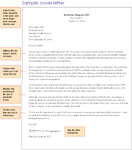Article
Finding a Job Step 3: Selling yourself
The way you present yourself—on paper and in person—will determine whether you land that dream job.
Once you've found a job that interests you enough to apply for it, you've got to sell yourself to your prospective employers. And that's something that a lot of doctors are either uncomfortable with or haven't had to do in a long time. The selling starts with your very first contact with the employer and goes right through the interview process. You have to sell yourself both on paper and in person. And, like medicine, effective selling is a combination of art and science.
In this third installment in our six-part series, we cover both. You'll find tips from the experts on preparing the written materials you'll need, getting ready for the interview, and what to say and do when the big day comes.
Assembling the tools you'll need Before you apply for any position, you'll need to have a well-written resume or curriculum vitae (CV). For residents and most young physicians, a one- or two-page resume listing your education, licensure, and work experience if you have any is usually sufficient. However, if you're an established physician who is published often, participates in research, or gives presentations, you'll want to prepare a CV. Like a resume, it includes career basics, but the added details can bring a CV to as many as 10 to 15 pages. A resume is more clearly a job-search tool and will often include a heading for "References" (usually followed underneath with "Upon request"); a CV is a professional biography in outline form and almost never has any notation about references.
It should emphasize your accomplishments without projecting the image that you're self-centered. For instance, instead of starting with something like, "I've been in private practice for 10 years and will be a tremendous addition to your group," or "I was Chief Resident and started a new quality improvement program," say, "Your group's need for an internist to serve a geriatric population fits perfectly with my experience in caring for elderly patients." The latter wording not only places the focus on the employer, it addresses the group's current need and the position for which you're applying.

The cover letter serves as a lead-in to the CV, which will spell out your qualifications in more detail. Many physicians make the mistake of providing too much information and not prioritizing it. You don't want to make someone wade through three or four pages before finding the facts that are most relevant to the position you're applying for. Moreover, always keep the information in your CV up to date. Consider reviewing it every month or two if you participate in research, publish articles, or give lectures frequently.
It's also important that your CV look professional. Pay attention to consistency in the headings you use. Check your spelling and punctuation. Use a laser printer-inkjet pages can smear-and quality white or light-colored paper.





